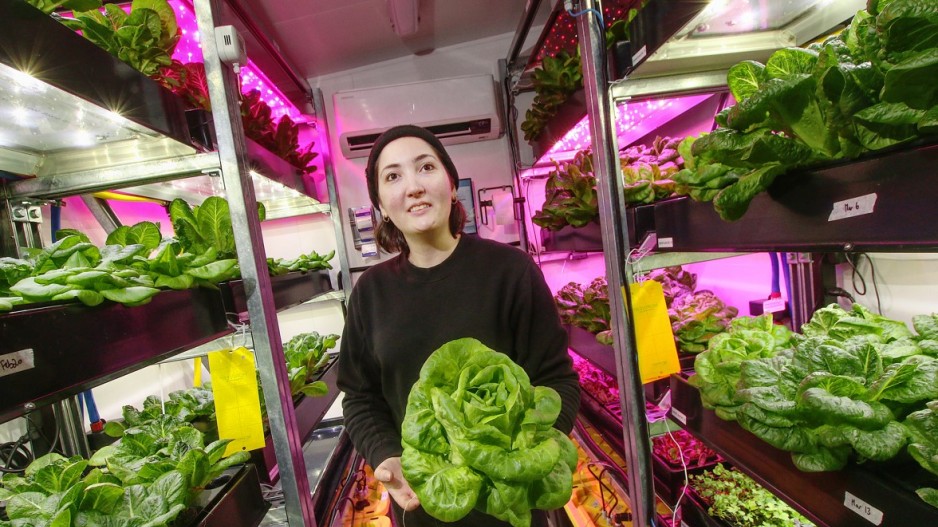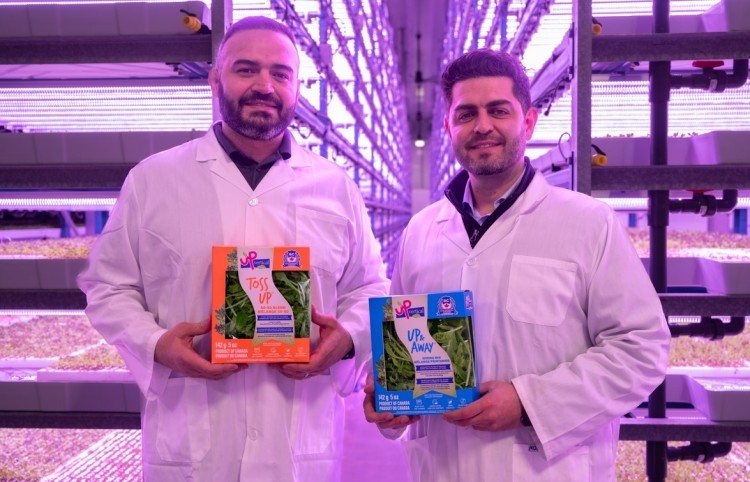The vertical agriculture industry in the Canadian province of Columbia is growing rapidly. Driven by challenges such as changing regulations from the province's government, labour shortages in traditional agriculture, and a shaky supply chain between the province and California. To capitalise on this opportunity, many entrepreneurs have begun leasing space in Columbia's Agricultural Land Reserves (ALRs) to expand their vertical farming operations. Others have opted to grow and produce in expensive industrial buildings to be closer to population centres.
For its part, the Columbia government has allowed vertical farms in Agricultural Land Reserves (ALRs) and larger operations, which has opened the floodgates for expansion of the industry. Currently, there are approximately 150 agri-tech companies in the province, with at least six vertical farming players expanding rapidly. In the next few years, it is expected that the province will produce virtually all of its leafy greens and small fruits in greenhouses or vertical operations.However, this emerging industry still faces a number of challenges, such as high upfront costs, the need for large amounts of energy and technical expertise.
Some companies such as QuantoTech Solutions Ltd. continue to choose to rent more expensive industrial buildings because they are closer to population centres. CEO Van der Gracht started the company in partnership with the University of Fraser Valley. They moved into a 5,000-square-foot site, half of which is used for vertical farming and the other half for the production of vertical farming equipment.
QuantoTech produces lettuce as well as other produce in sustainable packaging and sells it online through the directfood website.
QuantoTech's produce is currently generating thousands of dollars worth of sales, and an even bigger source of revenue is what she calls the‘Plug and play’ microfarms. This type of farm has an area of 10*12 ft.Ideal for remote communities with just over 1,000 people who lack a source of fresh produce.
QuantoTech has sold four microfarms for about $150,000 each.
Recently QuantoTech was finalising a lease arrangement for a 20,000-square-foot indoor farm at Cambie Street and West sixth Avenue, which she hopes to move into by the fall. She plans to grow produce in all of the 20,000-square-foot site, not manufacture equipment, although current Saskatchewan investors may provide funding and her equipment manufacturing business will expand, according to QuantoTech.

Photo|QuantoTech CEO Alycia van der Gracht is in the process of finalising a lease to build a vertical farm in a 20,000-square-foot space at Cambie Street and West 6th Avenue.
According to CEO Van der Gracht there is more than $10 million in revenue from device sales alone, so there will be an expansion of revenue from both channels.’
Other entrepreneurs are also heavily involved in vertical agri-food production and have similarly ambitious plans.
Up Vertical Farms' fully automated custom vertical farm in Pitt Meadows went into production in March this year.
Up Vertical Farms was founded with a multi-million dollar investment by two brothers, Bahram Rashti and Shahram, who built a 50,000-square-foot vertical farm on 10 acres of ALR land and designed the company's equipment.

PICTURE|Shahram (left), co-founder of Up Vertical Farms, and brother Bahram Rashti hold salad greens they grow in their hands
The workers pour the seeds into the machine. The machinery takes over from there and spreads the seeds on trays that are 40 metres long and 1.2 metres wide. The automated system then places the planting trays in racks that can hold 12 layers of trays. The vegetable salad grows in about 3 weeks or so, without pesticides, and is healthy and non-polluting.
The equipment grabs trays, loads them with chopping knives, and slices the leafy greens. Other equipment divides the salad greens into even portions and loads them into bags.
The brothers are currently working with global food distribution giant Oppenheimer Group, who deliver their products to all distribution centres in Columbia, Alberta, and Manitoba. The vegetable salads are also being sold on the shelves of retailers such as Fresh Street Market and IGA.
Up Vertical Farms expects to generate millions of dollars in revenue this year and expand rapidly thereafter.
Up Vertical Farms and QuantoTech are two of many competitors seeking to gain market share in this emerging agricultural sector.
According to Agriculture Canada, there are about 150 agri-tech companies in the province, while at least six companies are rapidly expanding in the development and technology of vertical farming.
The Columbia government's regulatory amendments allowing businesses to do more vertical farming in the ALR have helped these players, but barriers remain.These include tax challenges, some issues with farm status, and struggles with the marketing department.
Prior to that, Columbia was a very heavily regulatedthere are many regulations that need to be updated to support business growth.